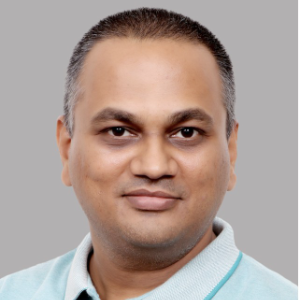Title : Input management for sustainable chemistry
Abstract:
Sustainable chemistry, also known as green chemistry, is a fundamental approach to chemical management that aims to minimise adverse effects on the environment and human health whilst maximising resource efficiency. It involves the design, manufacture, and use of efficient, effective, safe, and more environmentally benign chemical products and processes. This integration can be accomplished by implementing sustainable processes and technologies at an industrial scale by adopting green and sustainable chemical practices in the manufacturing of chemicals, materials, and products. With the United Nations Environment Programme (UNEP) and the Organisation for Economic Co-operation and Development (OECD) highlighting the significance of sustainable chemistry in risk management and the life-cycle assessment of chemicals, materials, and products, the concepts of green and sustainable chemistry have gathered a great deal of attention globally. In the context of chemical management, the application of sustainable chemistry principles can lead to the development of safe and sustainable alternatives for chemicals of concern, the sustainable sourcing of resources and feedstocks, and the advancement of sustainability in production processes and products. In the implementation of sustainable programs, the end-of-pipe scrutiny, and treatment thereof is invariably considered as the significant step. However, we believe that sustainable chemistry starts with “INPUT MANAGEMENT” and it is therefore a crucial stage for chemical industries. We believe that clean input delivers clean output.
For the Input management, we have created MRSL (Manufacturing Restricted Substances List), which is a list of chemicals, known to be hazardous for various reasons (including but not limited to be classified as CMR/PBT/vPvB). By restricting the chemicals in the input stream, the contamination in the output (whether be it a product, wastewater, air emitted, or the sludge developed) can be controlled. These outputs are directly related to the consumers or to the environment, thereby reducing the adverse impact. Our Vision is to create a world where better chemistry leads to the protection of life, land, air, and water.
Audience Take Away
- A shift towards cleaner input chemicals over end-of-pipe treatments encourages researchers to rethink their approach, emphasizing proactive solutions rather than reactive ones. This new concept prompts a fresh perspective on research methodologies and problem-solving strategies.
- Understanding the significance of supply chain management within chemical industries is crucial for professionals. Acquiring knowledge about industry requirements and fundamental concepts not only enhances their current roles but also prepares them for future demands and trends within the sector.
- The topics covered in the presentation expand the audience's understanding of upcoming industry requirements and expectations. This broader insight equips them to anticipate and adapt to changes effectively, fostering resilience and competitiveness in their respective roles.
- The information presented not only enhances efficiency but also increases the relevance of the audience's work to industry standards and needs. By aligning research efforts with industry demands, professionals can contribute more meaningfully to advancements and innovation within the field.



